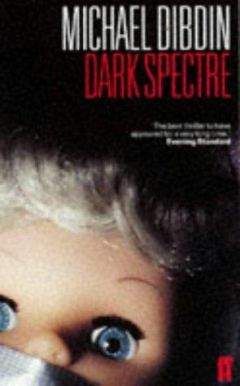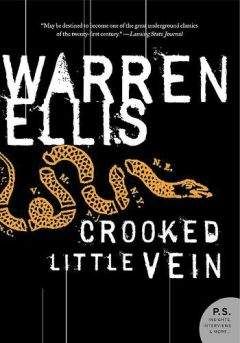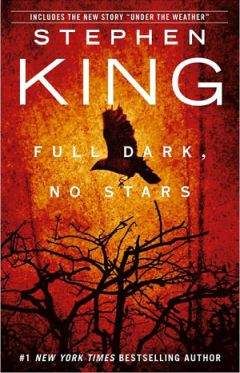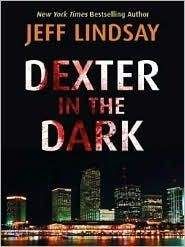Michael Dibdin - Dark Specter

Скачивание начинается... Если скачивание не началось автоматически, пожалуйста нажмите на эту ссылку.
Жалоба
Напишите нам, и мы в срочном порядке примем меры.
Описание книги "Dark Specter"
Описание и краткое содержание "Dark Specter" читать бесплатно онлайн.
After that it was a free-for-all as the children milled around, falling over each other, getting their paper trails confused, before finally finding and unwrapping the present. When they eventually calmed down, they discovered that the woman in charge was no longer there. But children are used to adults drifting in and out on mysterious errands, and for a while none of them thought much of it. They played with their toys, then, left to their own devices, some of the more aggressive ones started to attack the food. After that the situation gradually deteriorated. No one noticed that the woman’s daughter and David were also missing.
All attempts to trace “Carol” proved fruitless. She had rented the house six weeks earlier, paying the deposit and two months rent in advance with a check drawn on a local bank. The account had been opened with a cash deposit of three thousand dollars, the balance of which had been withdrawn the day before the party. The Social Security number and other details the woman had given all proved false, as was her name. She had of course been seen coming and going at the school and at her home, but no one seemed able to give a precise description of her. Even estimates of her height varied wildly.
The teachers at the school told police that her daughter had been withdrawn and uncommunicative, and the same seemed to apply to her mother, if she was her mother. The FBI was already working on the possibility that the girl was the victim of an earlier kidnap-there were some similarities with an unsolved case on their files-and that the woman had wanted to add a son to her “family.” I found this marginally comforting, just as I did the knowledge that the aggressor was a woman. What I most dreaded, of course, the unspoken horror that surfaced at four in the morning, was the idea that David had fallen into the hands of someone for whom evil, the deliberate infliction of pain, was an end in itself.
The police did their best to reassure us, and to make themselves look good, but it was obvious that there was little they could do except hope that the massive searches, roadblocks and appeals to the public produced some result. It didn’t seem likely that we would receive a ransom demand. If that had been the object of the kidnapping, there were several children attending the party whose parents were in a much better position to pay than Rachael and I.
Besides, all the evidence suggested that the victim had been chosen at random. Only one of the lengths of crepe paper led out into the kitchen. The woman had presumably waited until the child following this trail passed through the connecting door, then locked it and decamped. But since the process of selection was done by the children themselves, and done blind, there was no way of determining in advance who that would be. All the woman knew was that one of the children would fall into her trap. It just happened to be David.
This sense of arbitrariness was almost the hardest thing for Rachael and me to face. Our son had been taken from us by someone whose identity was unknown and whose motives did not bear thinking about, and all by chance. Our suffering and appalling sense of helplessness, to say nothing of whatever David might be going through, were all mocked by the knowledge that they were the product of nothing more than a mere lottery, a casino sideshow whose odds were precisely calculable: fourteen to one.
It was three weeks to the day after David’s abduction that a maintenance worker at Elm Creek Park, a nature preserve northwest of Minneapolis, came upon a pile of bloodsoaked clothing and alerted the police. The description of the clothes David had been wearing when he disappeared had been widely circulated, and the garments were quickly identified as his. They were all there, every last one. I had to go to police headquarters to make the formal identification, and I wept when I saw his tiny shorts and socks. The denim shirt had been slashed in several places, and was heavily stained with blood. There were other stains on the jeans.
About a year earlier, David had exhibited symptoms which led our doctor to believe that he might be suffering from anemia, and a series of blood tests had been done. The results of these were still on file, and a comparison with the stains on his clothing produced a virtual certainty that the blood was his.
I was the one to tell Rachael. Maybe I did so badly; maybe there is no good way to break such news. I felt absurdly resentful at having been miscast as a character in some trashy made-for-TV weepy. My revenge was to read my lines as flatly as possible. The police had found David’s clothing in a state which suggested that he had been the victim of a violent attack. They were now searching the scene for his body, but Elm Creek Park was very large and the remains might not be discovered for some time, if at all.
“That’s impossible,” Rachael replied, shaking her head.
I was stunned at her calm, confident tone. For two weeks now, Rachael had been in a state of continuous agitation which even the powerful barbiturates the doctor had prescribed seemed unable to reach. Terrible panic attacks ripped her brutally out of her brief spells of broken sleep, and her mood swung from frantic bursts of pointless activity, in which she would go around the house moving furniture and other objects until each was positioned just so, to periods of almost catatonic inertia when she would not respond to the simplest remark. Yet now she had just heard the worst news of all, and it had seemingly been powerless to touch her. The reason soon became obvious: she hadn’t heard it.
“I’ve seen him several times,” she went on casually. “He’s alive.”
I sat staring at her across our walnut-grain coffee table. In one of her manic phases, Rachael had arranged copies of the New York Review of Books and Atlantic Monthly and other detritus of our former life into neatly aligned quadrilaterals, like the base layers of a pyramid.
“You never told me,” I said weakly.
“You wouldn’t have believed me,” she shot back.
Well, that was true enough.
“I saw him just today,” she continued in the same creepily conversational tone, “on my way back from seeing Mom. He was with that woman. They were driving the other way. I saw him clearly. But there was a central divider, so I couldn’t do a U-turn. I turned around the first chance I got, but I never caught up with them. But it was definitely David.”
She went on to describe the other sightings, always brief glimpses in some situation which, conveniently enough, made it impossible for her to make contact. My response to this was no doubt unhelpful. I should have passed the whole thing over to the professionals we were consulting and let them handle it. But I was under considerable strain myself that day, having seen what I’d seen and heard what I’d heard. I needed sympathy and support in facing what had to be faced, not a course of self-serving delusional fantasies.
“Rachael, he’s dead. He must be. It’s just a matter of time before they find the body. I’m sorry, but there’s no point in either of us trying to pretend otherwise. It merely delays the process of healing.”
I suppose I sounded sanctimonious and insincere. She gave me a withering look.
“He’s always been dead to you,” she said. “You never wanted a child in the first place.”
There was some truth in this, although the moment David was born and I held him in my arms, what I had or had not wanted became irrelevant. But Rachael had never forgiven me for not responding the way she had hoped when she announced that she was pregnant. Now she was taking her revenge.
“It doesn’t matter what you or the police think,” she went on with an icy calm. “I know David is alive. That woman is just trying to throw me off the trail. She knows I’ve seen her, and that sooner or later I’ll catch up with her. She’s trying to make me despair and give up. Well, it won’t work. She may have fooled everyone else, but she can’t fool me. I’ll never abandon David whatever happens. Never.”
Nor did she. When her fanatical faith finally deserted her, she joined him.
Two days later Rachael went to visit with her mother. When she didn’t return, I called and discovered that she had left the house at six. It was now almost nine. When another hour passed with no sign of her, I alerted the police, but there was little they could do at that time of night. Even when a full search began, it was two days before they found her body in the car, parked in a clearing off a back road in a state forest thirty miles out of town.
Maybe it was that final conversation with her mother that finally broke the self-induced spell which had been protecting Rachael. By now the story of David’s bloodstained garments had appeared in the papers and on TV, and Rachael’s mom-a matter-of-fact midwesterner from a German farming family-must have drawn the same conclusions as everyone else, and would not have hesitated to tell her so. Rachael’s comforting illusions could survive my skepticism, but she was defenseless against her own mother. Having postponed the reckoning with the truth for so long, she was swept away when it finally occurred. On the way back from her mother’s she stopped at a pharmacy and filled the repeat prescription for sedatives which the doctor had given her a few days earlier. Then she went to a liquor store and bought a bottle of vodka, and drove to the lonely glade in those woods and consumed them both.
I had already been through so much chat Rachael’s death merely confirmed me in my state of total numbness. I seemed to have been exiled to a zone beyond feeling, and I never expected to return. In the end I did, but gradually, and with frequent relapses. It was two months before I started to feel even fitfully normal, or rather to realize how abnormal I had been feeling for so long. It was another month after that-much of which time I spent with my parents back East-before I could even think about picking up the threads of my life. As soon as I did, I realized that they were like the threads of David’s shirt: slashed and drenched in blood.
Take the Chevy Nova, for instance. It was no longer a car but Rachael’s death chamber. How could I use it to drive to work or to stock up and save at Safeway? I soon realized that the house would have to go too. Every square inch was mined with memories, any one of which was enough to blow my fragile sanity to shreds. I put it on the market and moved into a rented apartment downtown. The idea was to put what had happened behind me and start again in a new place, with new friends and a new life. The college had given me the rest of the semester off, as much to avoid unwelcome publicity as anything else, I suspected. With the summer vacation coming up, I had several months in which to pull myself together and-the phrase seemed appropriate for some reason-“get my head together.”
Instead I fell apart more completely than ever before. For days at a time I didn’t even get out of bed. I unplugged the phone, which brought a succession of calls from oversolicitous people wanting to know how I was “getting along.” I didn’t open my mail or read the papers. I turned the television to face the wall and left the drapes drawn all day long. Dishes and clothes went unwashed. I hardly ate.
At the time I thought I was just having another relapse into the shock and grief which had overwhelmed me for so long. I realize now that it was more than that. What had happened was hard enough to deal with in itself, but it also called into question everything I had been doing in the years before, and what I was going to do now. Ever since awakening from the acid dream, I had dedicated myself to coming to terms with the realities of life. I had traded in the cheap thrills of my youth for a package which, so I believed, would make up in security and substance for what it might lack in other respects.
Despite the high tone I had taken with Sam, the truth was that this had not always been easy. I had married Rachael because she seemed to epitomize the solidity I was searching for, but there were times when this very fact made her seem an unappealing mate. Our sex life had never been better than perfunctory, and fell apart completely after her abortive second pregnancy, but I had been faithful to her out of principle. My job often seemed little more than an obstacle course designed to test my endurance to the limit, but I’d stuck at that too.
And the result? A woman had staged a fake birthday party in order to abduct a child, any child, and that child was mine. Both David and Rachael had been taken from me, and the whole way of life I had given up so much to preserve had been destroyed. I felt as if I was being mocked for ever having tried to do the decent thing.
There was no way I could simply start again. I had lost my faith, and had nothing to replace it with. After what had happened, I could no longer believe that responsibility, self-sacrifice and hard work were their own modest reward. But I had invested so much time and energy in that illusion that I no longer believed in anything else either. The result was a paralysis of the will which was reflected in the weeks I spent in that apartment, staring at a wall as blank as my own mind.
I was roused briefly from my lethargy by the news that our house had been sold. I made arrangements for a moving company to strip the place of our possessions and put them in storage until I felt able to deal with the task of going through them and deciding what to do with everything. The day before the movers came, I drove over to Maplewood to remove a few more clothes and sort through my papers and documents for anything I might need. While doing so, I happened to come across the bar receipt on which Sam had written his name and phone number. The area code was 206. I looked it up in the phone book. It covered the western half of Washington State.
That chance discovery sparked an idea which firmed up into a project over the course of the next few weeks.
7
One Saturday evening in May Kristine Kjarstad got back from dinner at Ray’s Boathouse with a couple of gay friends and a woman called Betty whose sister had just had an operation for cancer, and who needed cheering up, to find a message on her voice mail.
“Hi, Kirsty, it’s Steve. Listen, if you’re around, tune in to Channel 13 right away. America’s Most Wanted is doing a scene that’s just like that Sullivan case, and I figure if the Kansas City cops can get air time, then why not us? Give me a call when you get in, I want to see the rest of it.”
Kristine gave a sigh of relief. Steve Warren’s burning ambition to get on television was one of the many features of her partner which failed to endear him to her, but her first thought had been that the message was from her ex-husband. Thomas was spending the night at his house, which gave Kristine a chance to go out. The price she paid in return was giving Eric the chance to nag her about some detail of the way she was bringing up their son.
It was now four years since she’d thrown Eric out, having belatedly realized that he was never going to change his ways. He’d appeared genuinely astonished by her decision, and maybe even more by the fact that she’d finally got around to making one. That had always been his role in the relationship. He’d picked Kristine out at college, where he was majoring in dentistry and she in social science, and dated her assiduously for two years. Once they both graduated, he had proposed and she’d said why not, even though the idea of her marrying a Swede hadn’t gone down too well with her Norwegian family. Looking back at it now, Kristine could see that she had passively bought into his program all along. What she didn’t understand, even now, was why.
Подписывайтесь на наши страницы в социальных сетях.
Будьте в курсе последних книжных новинок, комментируйте, обсуждайте. Мы ждём Вас!
Похожие книги на "Dark Specter"
Книги похожие на "Dark Specter" читать онлайн или скачать бесплатно полные версии.
Мы рекомендуем Вам зарегистрироваться либо войти на сайт под своим именем.
Отзывы о "Michael Dibdin - Dark Specter"
Отзывы читателей о книге "Dark Specter", комментарии и мнения людей о произведении.







